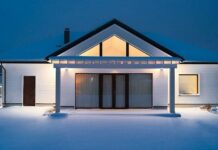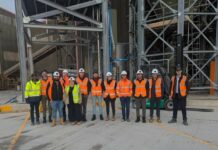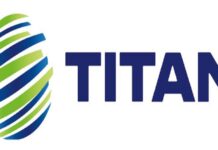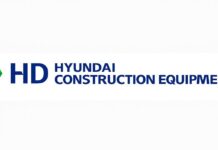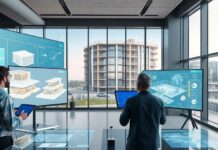Siemens has finished installing a leading-edge HVAC system in the new S-building which has extended the A.S.Z. (general city hospital) campus in Aalst, Belgium. The building technology experts have also supplied the CCTV and access control systems. All air conditioning, ventilation and security functions have been brought together in the Siemens management system, Desigo CC. This makes it much easier to operate for both healthcare personnel and patients, thereby providing more comfortable rooms and reducing energy consumption at the same time. Siemens is therefore helping the A.S.Z. in Aalst to meet the Belgian Supreme Council of Health’s increasingly stringent requirements and standards for energy efficiency in buildings.
The healthcare profession is under more pressure than ever. It has to reconcile patient expectations regarding security and quality of care with compliance with increasingly complex energy regulations. “Complying with all the standards is a real challenge for hospitals”, explains Pascal De Ras, head of the technical department at the A.S.Z. “While the Supreme Council of Health stresses the importance of sufficient ventilation, increasingly strict requirements on energy efficiency in buildings require us to reduce our energy consumption and CO2 emissions year-on- year. It’s not easy to bring both of these together.”
Air renewed twenty times an hour
Building technologies such as air conditioning play an increasingly crucial role. This was certainly the case when designing the new S-building (an extension to the
A.S.Z. campus in Aalst), which includes a cardiovascular and interventional center, a clinical laboratory, an outpatient clinic and an intensive care unit with 18 patient rooms. Siemens has provided the HVAC solutions.
“The S-building depends entirely on mechanical ventilation”, explains Jan Fieremans, Account Manager Building Automation at Siemens. “Each level, covering around 1250 m2, is ventilated by a separate HVAC system to ensure 100% fresh air. In the cardiology department’s treatment rooms, the air is renewed twenty times an hour. The HVAC system for the lab alone generates a flow in excess of 30,000 m3 of fresh air an hour.”
A single interface for all functions
In the S wing, the air conditioning, lighting and blinds are managed via a single, unique Desigo CC system developed by Siemens. It simplifies air conditioning and makes it easier to operate throughout the entire annex. “The control panel interfaces are tailored to each department. The ease with which shade, lighting and heating can be controlled in the room is also a plus for the patient. This makes it possible to improve comfort, to make the stay in hospital more pleasant and to encourage the healing process”, adds Pascal De Ras.
Energy management is also entirely centralized in the Desigo CC. Movement and light sensors linked to the management system lead to considerable energy savings. The Siemens weather station on the hospital’s roof has also been connected to the Desigo CC to allow smart control of the blinds and air conditioning.
The importance of automation
The CCTV and access control solutions have also been provided by Siemens, from monitoring all entrances and exits to autonomous monitoring of patients in intensive care, for example, where images are not recorded in order to respect privacy.
Pascal De Ras adds: “The technical sophistication of the buildings is increasing and the bar is also constantly being raised in terms of energy savings. Automation has become essential. With Siemens, we’ve found the right partner. Our long collaboration has confirmed us in our opinion that Siemens is a pioneer when it comes to building technology.”
“For sites like the new S-building at the A.S.Z. in Aalst, where factors like energy savings, comfort, ease of use and quality all come together, the technology also has to be combined in an intelligent way. Working in collaboration with the hospital, we have managed to create an ecosystem in which our solutions provide optimal support for healthcare personnel so that they can treat patients under the best possible conditions”, concludes Jan Fieremans.
Siemens Smart Infrastructure (SI) is shaping the market for intelligent, adaptive infrastructure for today and the future. It addresses the pressing challenges of urbanization and climate change by connecting energy systems, buildings and industries. SI provides customers with a comprehensive end-to-end portfolio from a single source – with products, systems, solutions and services from the point of power generation all the way to consumption. With an increasingly digitalized ecosystem, it helps customers thrive and communities progress while contributing toward protecting the planet. SI creates environments that care. Siemens Smart Infrastructure has its global headquarters in Zug, Switzerland. As of September 30, 2020, the business had around 69,600 employees worldwide.
Siemens AG (Berlin and Munich) is a technology company focused on industry, infrastructure, transport, and healthcare. From more resource-efficient factories, resilient supply chains, and smarter buildings and grids, to cleaner and more comfortable transportation as well as advanced healthcare, the company creates technology with purpose adding real value for customers. By combining the real and the digital worlds, Siemens empowers its customers to transform their industries and markets, to transform the everyday for billions of people. Siemens also owns a majority stake in the publicly listed company Siemens Healthineers, a globally leading medical technology provider shaping the future of healthcare. In addition, Siemens holds a minority stake in Siemens Energy, a global leader in the transmission and generation of electrical power.In fiscal 2020, which ended on September 30, 2020, the Siemens Group generated revenue of €55.3 billion and net income of €4.2 billion. As of September 30, 2020, the company had around 293,000 employees worldwide.




